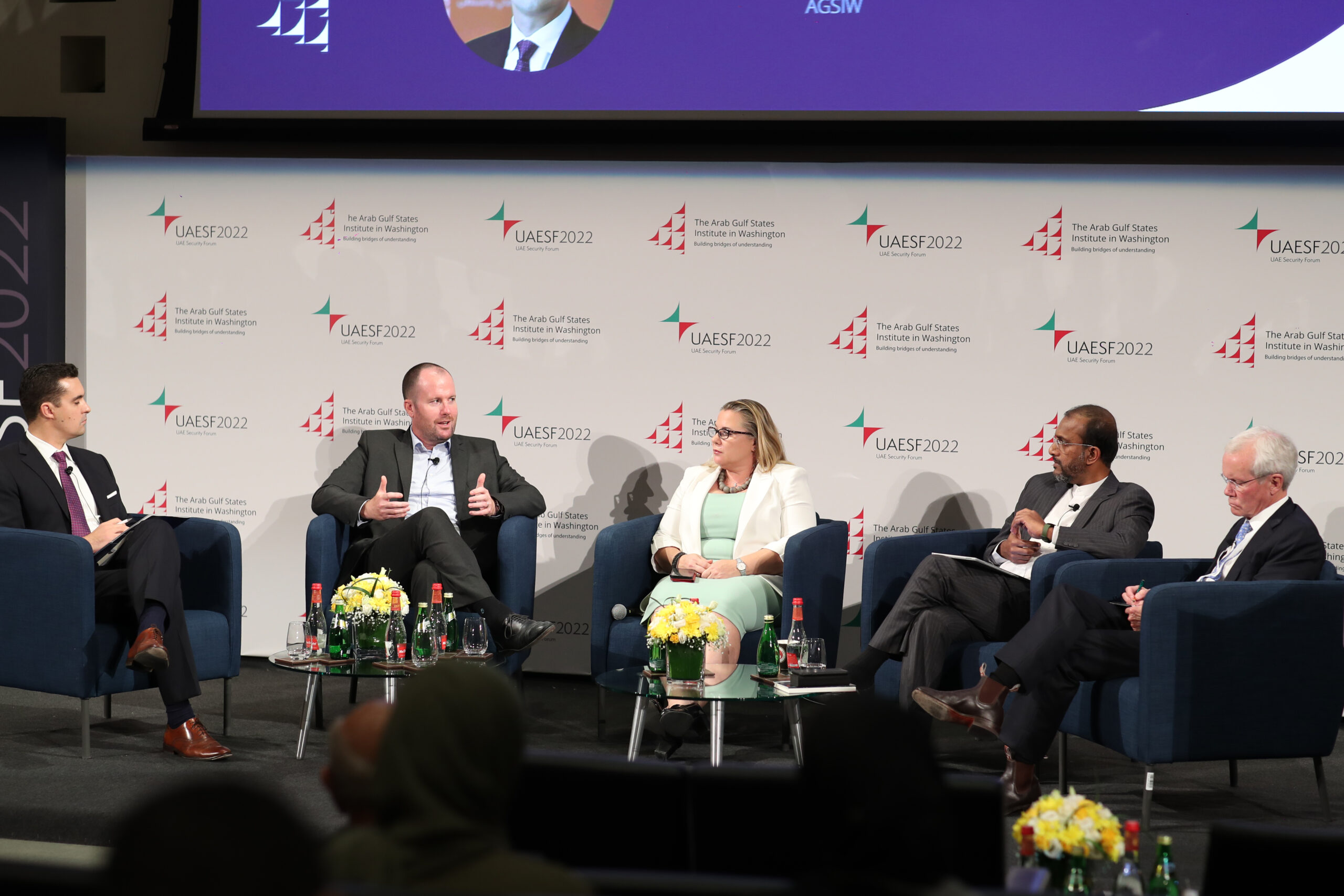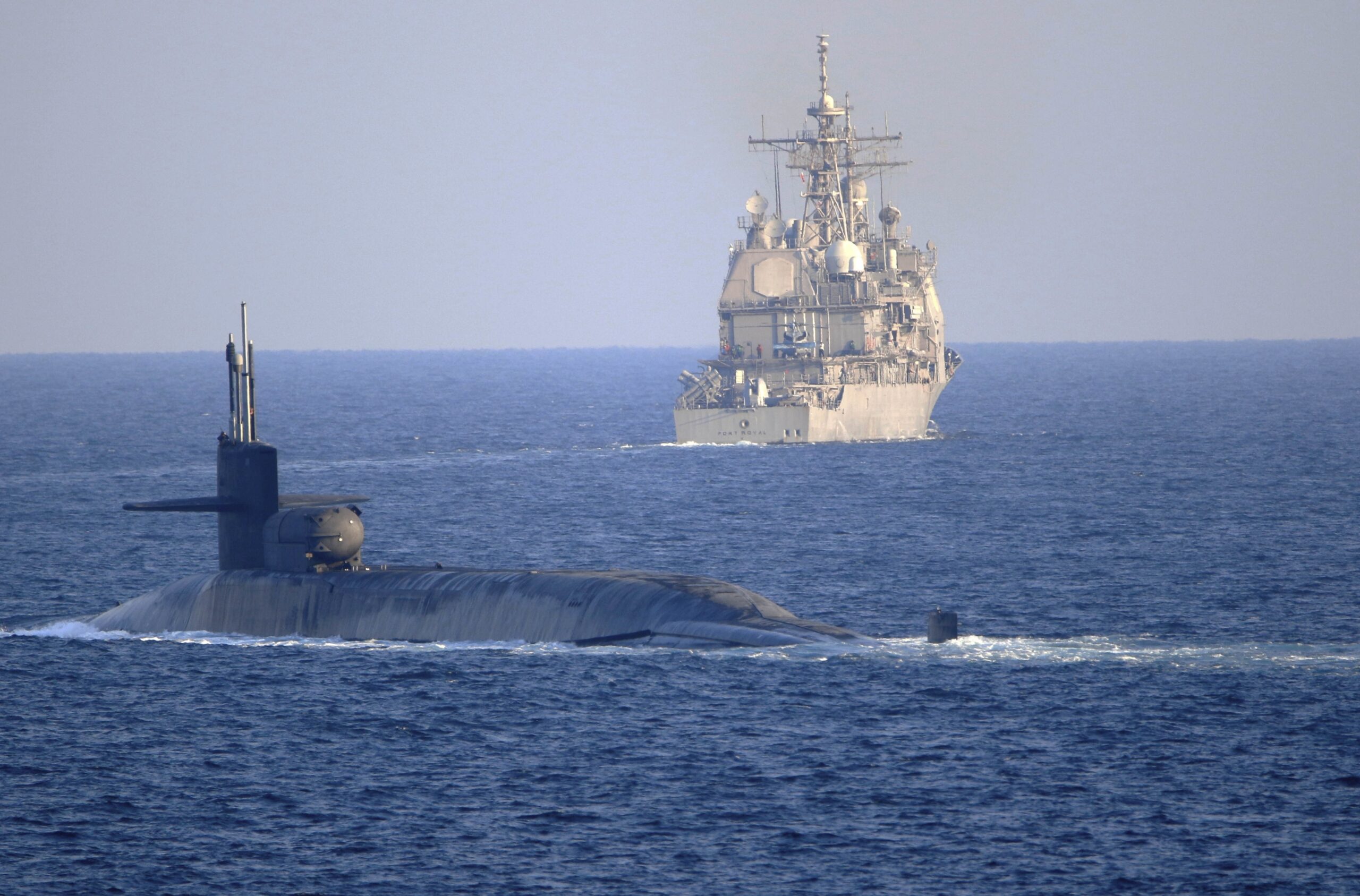Event Report – UAE Security Forum 2022: Expanding Regional Partnerships for Security and Prosperity
This report is based on the presentations and discussions during the UAE Security Forum 2022, “Expanding Regional Partnerships for Security and Prosperity,” held on November 17, 2022 in Abu Dhabi, United Arab Emirates.

Executive Summary
On November 17, 2022, the Arab Gulf States Institute in Washington held its annual UAE Security Forum, with the theme “Expanding Regional Partnerships for Security and Prosperity.” Held at New York University Abu Dhabi, the event gathered top experts from the United States and the Gulf region. Discussions focused on issues currently affecting relations between the United States and the Gulf Arab states, including diverging threat perceptions, maritime security, and the forging of new economic and security partnerships.
Relations between the United States and the Gulf Arab states are adjusting to a new set of realities. On the economic front, these include a United States that is no longer dependent on Middle East oil and Gulf Arab states that themselves are building post-oil economies, with an overall drive by both toward more self-sufficiency. Geopolitically, the United States has identified China as its prime competitor, while Gulf Arab states are increasingly unwilling to pick a side as the United States competes with China and Russia. Instead, they are pursuing strategies geared toward maximizing their own interests by diversifying partnerships. Regarding security, the militaries of the United States and the Gulf Arab countries may be ill equipped to deal with a new reality of decentralized warfare and the use of cheap precision weaponry, such as drones, as Russia is currently experiencing in Ukraine.
These new realities are matched with changes in respective threat perceptions, with transformations in relative power balances – regionally and globally – and with adjustments in security strategies. While still mostly aligned, threat perceptions of the United Sates and Gulf Arab partners are diverging. Among other things, there is a disconnect on the line between terrorism and radicalization as well as on tackling the growing problem of nonstate actors. A third important element remains divergence regarding the desired outcome of negotiations with Iran. These have often become too technical with the United States predominantly focused on managing enrichment capabilities rather than creating a framework to generate confidence that other concerns, including proxy groups, the proliferation of weapons in the region, and, ultimately, political ambitions are being addressed.
Also affecting U.S.-Gulf Arab relations are perceptions around the reliability of the United States as a security partner. The debate over the U.S. force posture, the emphasis on the United States’ “pivot to Asia,” and the U.S. withdrawal from Afghanistan have triggered uncertainty. Nonetheless, the Gulf region remains of strategic importance to the United States, which looks set to maintain its basic security architecture in the region. And regarding Gulf maritime security, the United States remains unrivaled and is building effective partnerships with regional allies. Still, the uncertainty generated has had consequences. First, it has led to an expectations gap, manifested in a demand for clearer U.S. commitments. Second, at least indirectly, the uncertainty has led to the Gulf Arab states pursuing a broad strategy of diversification.
The coronavirus pandemic has intensified the thinking that multiple partnerships make for greater security, and new partnerships are increasingly being established. Most prominent are those related to the 2020 Abraham Accords and the Gulf Arab states’ opening to Israel. While these new partnerships present opportunities for regional cooperation, they will need to be continuously managed in a way that all sides benefit, while ensuring that collaborations on paper actually materialize.
The views represented herein are the author's or speaker's own and do not necessarily reflect the views of AGSI, its staff, or its board of directors.
